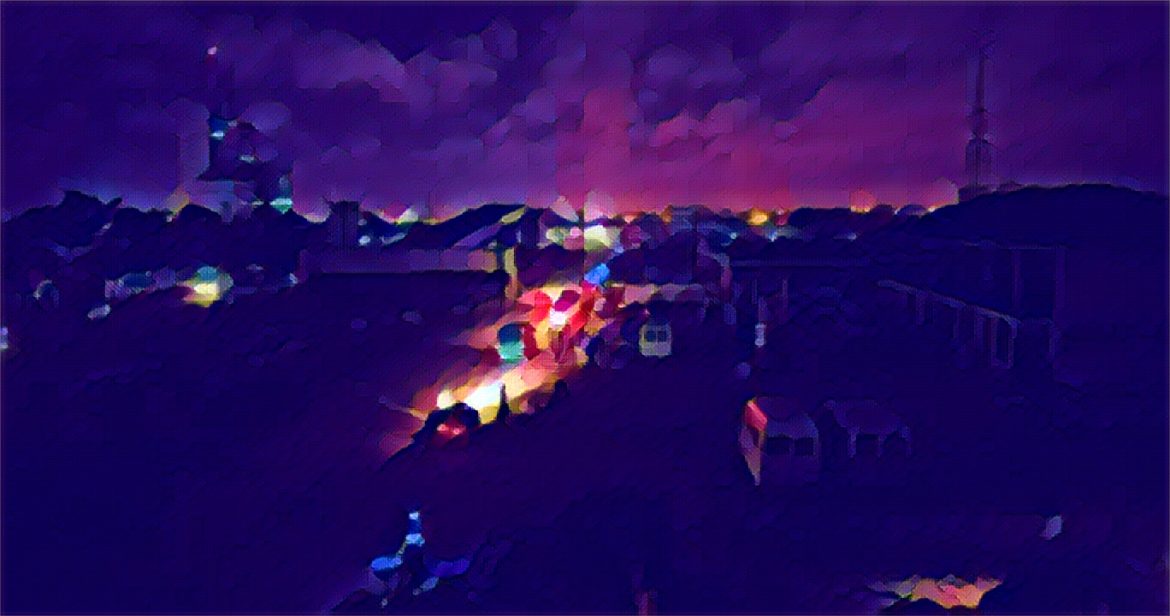In the heart of Ghana’s bustling capital, Accra Academy Senior High School, a storied institution known for its academic excellence and rich history, faced an unprecedented crisis that cast its campus into literal darkness. This incident, which unfolded on the evening of February 19, 2024, serves as a stark reminder of the fragile interplay between educational institutions and the infrastructural services they depend upon. The Electricity Company of Ghana (ECG), citing unpaid arrears, made the difficult decision to cut off electricity supply to the school, leaving approximately 3,000 students and faculty in a precarious situation, illuminated only by the dim glow of torchlights and fraught with concerns for safety and the continuity of education.
This situation did not arise in isolation but is a symptom of broader systemic issues facing educational institutions and public utilities in Ghana. The disconnection occurred at 08:40 pm, plunging the entire campus into darkness and forcing students to adapt instantaneously to an environment devoid of one of the most basic amenities—electricity. This abrupt transition to darkness was not only a physical but also a metaphorical representation of the uncertainties and challenges lurking in the shadows of educational and financial governance.
A media practitioner, present on the scene, conveyed images of students huddled around torchlights, striving to maintain their academic routines amidst the adversity. These images, poignant in their simplicity, underscore the resilience and determination of Ghana’s youth, even as they navigate obstacles that hinder their pursuit of knowledge.
An unnamed teacher, with over three decades of experience, voiced his dismay and concern to Citi News, an Accra-based news outlet. He described the event as the “saddest day” of his professional life, a sentiment that resonates with the gravity of witnessing his and his students’ educational sanctuary being stripped of its light. The teacher’s account provides a personal and human perspective on the disruption, highlighting the immediate impacts on teaching and learning, as well as raising alarms about the safety and well-being of the students under his care.
The narrative of the Accra Academy blackout is not merely about the physical absence of light but also about the systemic challenges that led to such a drastic measure by the ECG. According to reports, officials from the ECG, adamant in their decision despite negotiations and pleas, cited directives from higher authorities to proceed with the disconnection due to significant outstanding debts. The specifics of the arrears were not disclosed, adding a layer of ambiguity and frustration to the attempts by the school’s administration to resolve the issue. This event underscores the importance of transparency, communication, and collaboration between public utilities and educational institutions to prevent such occurrences that directly impact the educational experience and safety of students.
The teacher’s plea for reconsideration and urgent restoration of power reflects a broader appeal to the values of empathy, responsibility, and the collective good. It highlights the need for a balanced approach that ensures the sustainability of public utilities while safeguarding the educational rights and safety of students. The incident at Accra Academy serves as a call to action for stakeholders at all levels—government, public utilities, educational institutions, and the community—to engage in constructive dialogue and develop strategies that prioritize education and the welfare of students in the face of financial and infrastructural challenges.
In the broader context, this event is interwoven with ongoing discussions about the financial sustainability of public utilities, the impact of economic factors such as the depreciation of the Ghanaian cedi, and the implementation of initiatives aimed at reducing losses and improving service delivery. The dialogue surrounding the Accra Academy incident is part of a larger narrative about the resilience of Ghana’s educational system, the challenges of managing public resources, and the collective responsibility to nurture and protect the next generation of leaders, thinkers, and innovators.
As the Accra Academy navigates the aftermath of this crisis and works towards a resolution, the incident serves as a poignant reminder of the vulnerabilities and dependencies that characterize our modern educational ecosystems. It also underscores the importance of foresight, planning, and mutual support in ensuring that the pursuit of education—a fundamental right and a cornerstone of societal progress—is not unduly hindered by infrastructural and financial challenges. The blackout at Accra Academy is not just a story of darkness but a beacon, illuminating the path towards stronger, more resilient educational institutions that can withstand the challenges of an ever-evolving world.





2 comments
Your point of view caught my eye and was very interesting. Thanks. I have a question for you.
I don’t think the title of your article matches the content lol. Just kidding, mainly because I had some doubts after reading the article. https://accounts.binance.com/en-NG/register-person?ref=YY80CKRN